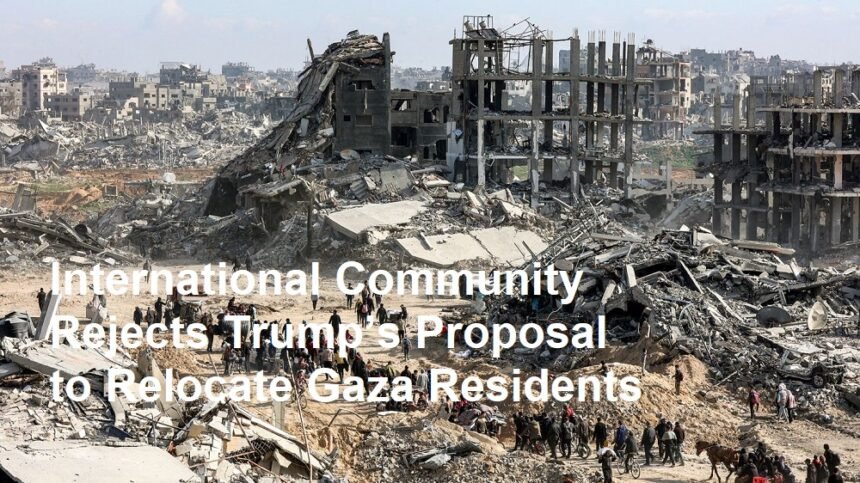WASHINGTON, February 8, 2025 – In a controversial move that has ignited intense international debate, President Donald Trump’s proposal to relocate the residents of the Gaza Strip has been met with widespread rejection from a diverse group of countries. The idea, unveiled during a recent press conference, has drawn sharp criticism from governments across Europe, the Middle East, and beyond, who argue that it not only violates international law but also threatens to further destabilize an already volatile region.
Among the most vocal critics are key European nations such as Germany, France, the United Kingdom, and Italy, all of which have issued formal statements condemning the proposal. These countries emphasize that forced relocation would undermine the rights of Palestinians and hinder the prospects for a negotiated peace between Israelis and Palestinians. “This proposal is not only impractical, it is an affront to the principles of human dignity and international law,” stated a spokesperson for the European Union, stressing that any viable solution to the conflict must be based on dialogue and mutual respect.
In addition to European nations, several Middle Eastern countries have joined the chorus of dissent. Egypt, Jordan, and Turkey—each with a long history of involvement in the region’s peace process—have expressed grave concerns that the plan could spark a humanitarian crisis. “Relocating an entire population against their will is not a path to peace,” said an Egyptian government official. “We must focus on addressing the root causes of the conflict rather than resorting to measures that would only exacerbate the suffering of Gaza’s people.”
Nations from other regions, including Canada, Australia, and Brazil, have also rejected the proposal. A Canadian foreign affairs minister remarked, “Any attempt to forcibly displace citizens in the name of political maneuvering is unacceptable and counterproductive. We stand firmly for solutions that uphold the rights and security of all individuals involved.” Similarly, Brazilian diplomats highlighted the importance of maintaining the current demographic realities, arguing that any forced change could lead to long-term instability in the region.
Diplomatic sources indicate that the proposal is viewed by many as a strategic move to sidestep the complex negotiations required for a lasting resolution to the longstanding Israeli-Palestinian conflict. Critics argue that such unilateral measures ignore the deep historical and cultural ties of the Gazan population to their land and risk alienating international partners who are committed to upholding human rights standards. “This is a clear attempt to simplify a deeply complex issue, but history shows that there are no easy fixes when it comes to displacement and conflict,” noted a senior Middle Eastern analyst.
In a surprising defense of the proposal, a senior official from the Trump administration suggested that the idea was intended to spark fresh debate on alternative approaches to resolving the conflict. However, this explanation has done little to assuage the concerns of international leaders, many of whom fear that endorsing forced relocation could set a dangerous precedent. “It is crucial that we learn from past mistakes and avoid repeating actions that have led to conflict and suffering,” commented a United Nations representative, urging all parties to return to constructive dialogue.
As the international community rallies in opposition to the proposal, discussions continue in various diplomatic circles about the best path forward for achieving a sustainable peace in the region. The firm rejection of Trump’s plan by a broad coalition of countries underscores the global consensus that any solution must respect the rights of all individuals and address the core issues driving the conflict. With tensions running high and the stakes incredibly significant, the future of peace in the Middle East remains uncertain, and the international community is committed to pursuing approaches that promote stability, justice, and lasting reconciliation.
For now, Trump’s proposal appears to be an isolated initiative with little support on the global stage, as governments worldwide reaffirm their commitment to upholding international law and human rights in one of the world’s most challenging conflict zones. This united front signals that any lasting resolution to the Israeli-Palestinian dispute must emerge from dialogue, cooperation, and mutual understanding—not from measures that risk displacing millions and further inflaming regional tensions.













